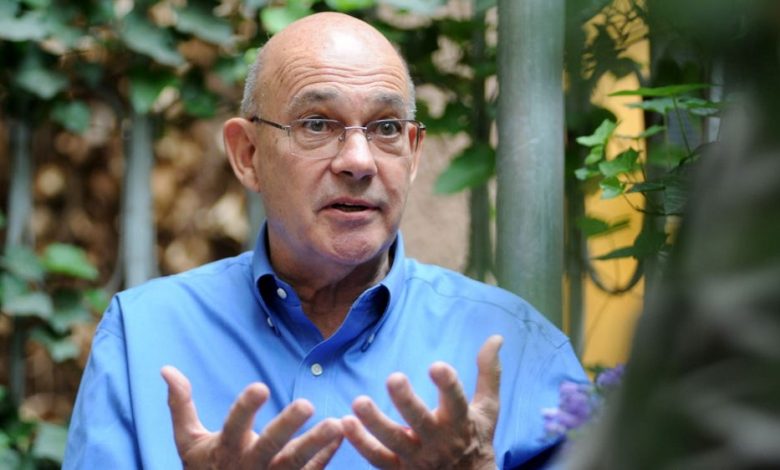
The Gaza ceasefire had been extremely fragile ever since its implementation on Jan. 19. Many analysts doubted that phase two would begin, and the main question was about when, not if, the ceasefire would fall apart. It came as no surprise when Israel completely ended the ceasefire on March 18 and resumed its genocidal war on Gaza, killing roughly 600 [1] Palestinians within the first four days after the truce collapsed.
It is beyond disturbing to think about what will come next for the 2.2 million people in Gaza, especially given that Israeli authorities imposed [2] a blockade on all humanitarian aid on March 2. While briefing the UN Security Council on the day Israel resumed its war, UN Emergency Relief Coordinator Tom Fletcher said [3] “food is rotting and medicines are expiring.” The Israelis quickly undid all humanitarian progress achieved by international actors during the 42-day ceasefire. “Essential survival resources needed are now being rationed,” warned [4] Fletcher.
For all the misleading and outright inaccurate reporting in the Western media, it is clear that Hamas wanted phase two to begin, which was supposed to take place on March 1. However, Israel wanted phase one extended and was against moving into phase two. Had the second phase begun, Hamas would have handed over all the remaining Israeli captives. Now, amid this intense warfare, Hamas claims it is considering US Special Envoy to the Middle East Steve Witkoff’s “Bridge Proposal,” which aims to extend the collapsed ceasefire into next month, beyond Ramadan and Passover, to permit negotiations for a permanent ceasefire to end this war.
It is not difficult to understand why this genocide resumed on March 18. Israeli Prime Minister Benjamin Netanyahu and his allies in the government were crystal clear that they did not support the ceasefire and wanted Israeli military operations against Gaza to resume. It was only pressure from the incoming Donald Trump administration during the final days of Joe Biden’s presidency that led Tel Aviv to agree to the tenuous ceasefire. Now that the Trump administration removed that pressure on Israel and the American president went all-out with his rhetoric about “hell” in Gaza, Netanyahu received the green light from the White House to continue the genocide.
Trump’s desires and reality
What US President Donald Trump realistically sought to achieve with his obscene rhetoric about a “clean out” [6] of Gaza and outlandish talk of transforming the war-ravaged enclave into the “Riviera of the Middle East” [7] is a question for another article. Nonetheless, it is easy to conclude that such language emboldened the most right-wing and aggressive Israeli elements, including those in the government. These extremists have spent decades fantasizing about a second Nakba and establishing a Palestinian state outside Palestine.
Put simply, for Netanyahu and those around him to champion this plan of mass ethnic cleansing and forced displacement of millions of Palestinians into Egypt, Jordan, and perhaps also some Gulf Arab countries, continuing the war on Gaza is a necessary part of this process. After all, human history has shown that people don’t volunteer to leave their ancestral homeland but typically only do as a result of massive bloodshed.
The Israeli leadership understands this about the Palestinians and their quest to remain on their land. So much was on display with the leaflets [8] that Israel’s military recently dropped on Gaza, which threatened to make Trump’s plan for a “clean out” of Gaza the new reality.
To be sure, Israel’s domestic politics and Netanyahu’s own legal situation were relevant factors too. By restarting the war on Gaza, Netanyahu was able to secure stability within his own coalition. Now, not only is there no reason for him to fear more cabinet members quitting the coalition, but former Israeli National Security Minister Itamar Ben-Gvir who left in January because of the ceasefire has returned [9] due to the genocide’s resumption.
Meanwhile, Netanyahu’s testimony in his corruption trial, set for the day that the war on Gaza recommenced, was postponed, [10] highlighting how “security developments” [11] shield him from legal consequences for his alleged [12] breach of trust, bribery, and fraud.
A key question is, where does this all leave Trump? After all, he campaigned on being a “peacemaker” president. While delivering his inaugural address just over two months ago, Trump declared, [13] “We will measure our success not only by the battles we win but also by the wars that we end — and perhaps most importantly, the wars we never get into.”
At this point, Trump might find himself trapped in Gaza, preventing him from reducing the US military footprint in the Middle East. Trump is escalating conflicts in the region—from Gaza to Yemen and possibly soon Iran—that could keep the US bogged down in this part of the world, which is the opposite of his promises regarding US foreign policy if elected to a second term. It remains to be seen how Trump’s support for Israel’s actions in Gaza and his escalation in Yemen—closely tied to Palestine—will impact his standing among his MAGA base.
The author is the CEO of Gulf States Analytics
[1] https://www.euronews.com/2025/03/22/israel-orders-idf-troops-to-advance-deeper-into-gaza-as-renewed-operation-expands
[2] https://edition.cnn.com/2025/03/02/middleeast/israel-halts-gaza-humanitarian-aid-intl-hnk/index.html
[3, 4] https://news.un.org/en/story/2025/03/1161246
[5] https://www.reuters.com/world/middle-east/israel-intensifying-gaza-strikes-press-hamas-into-freeing-hostages-defence-2025-03-21/
[6] https://edition.cnn.com/2025/01/27/middleeast/trump-clean-out-gaza-middle-east-intl/index.html
[7] https://www.nbcnews.com/news/world/trumps-gaza-israel-plans-riviera-rcna190748
[8] https://www.newarab.com/news/israel-drops-leaflets-saying-no-one-will-care-if-gazans-vanish
[9] https://www.aljazeera.com/news/2025/3/18/israels-ben-gvir-to-rejoin-netanyahus-government
[10,11,12] https://www.middleeasteye.net/live-blog/live-blog-update/report-netanyahus-testimony-corruption-trial-postponed-due-gaza-war
[13] https://www.whitehouse.gov/remarks/2025/01/the-inaugural-address/








